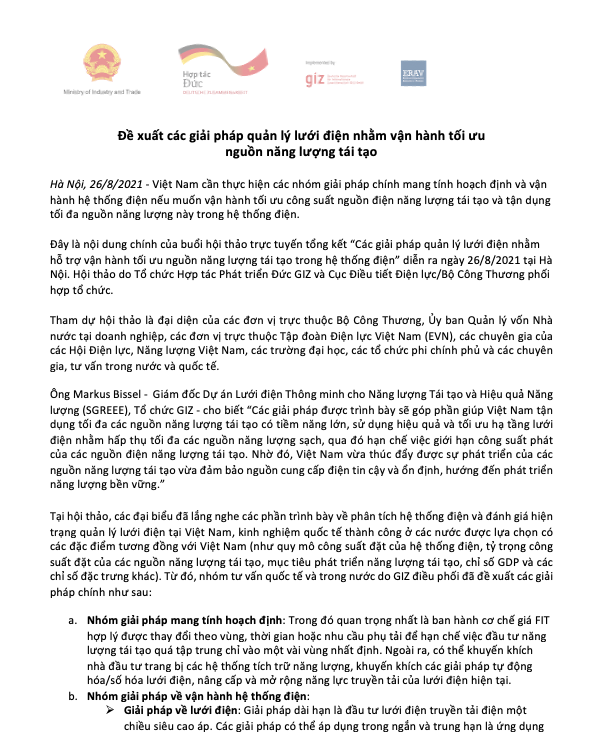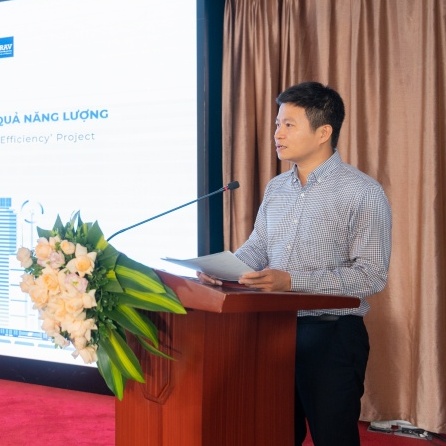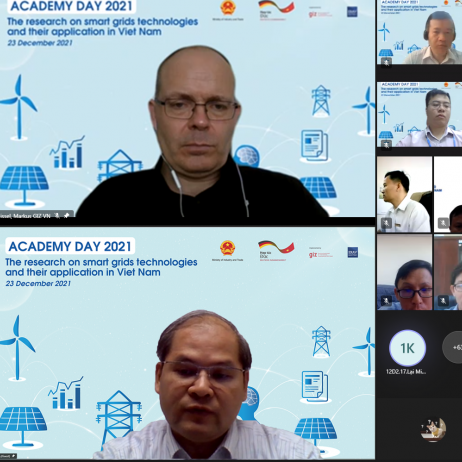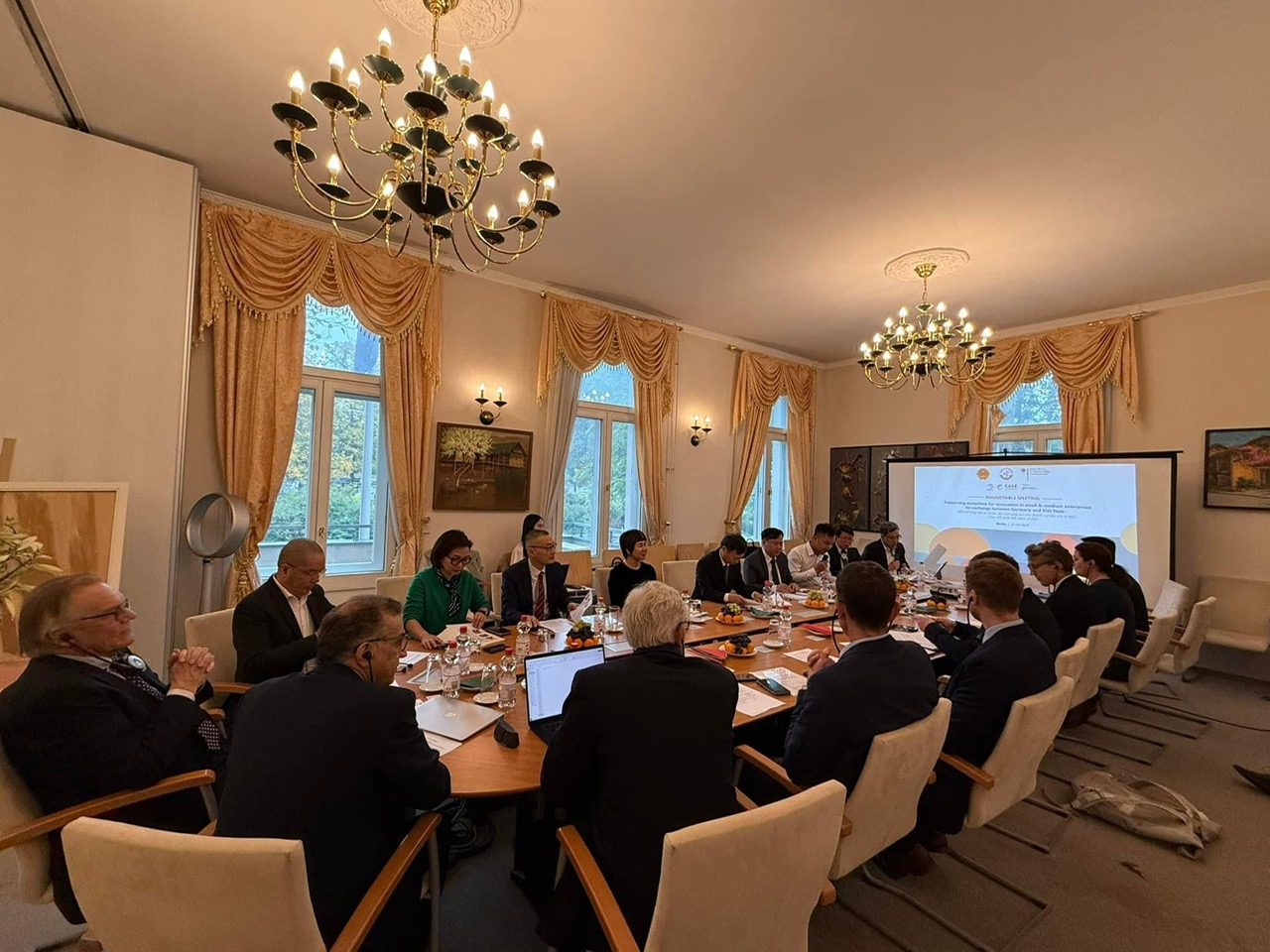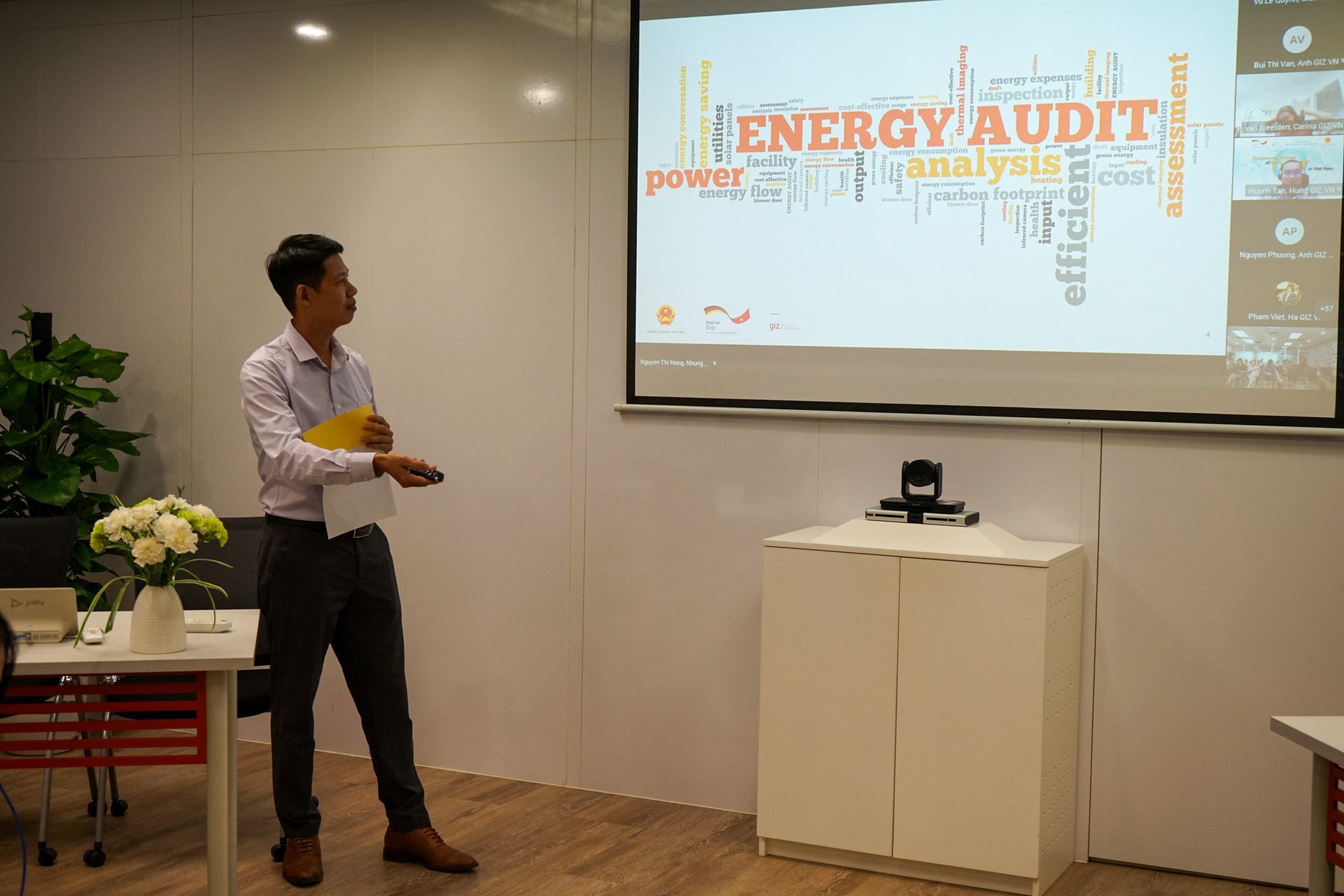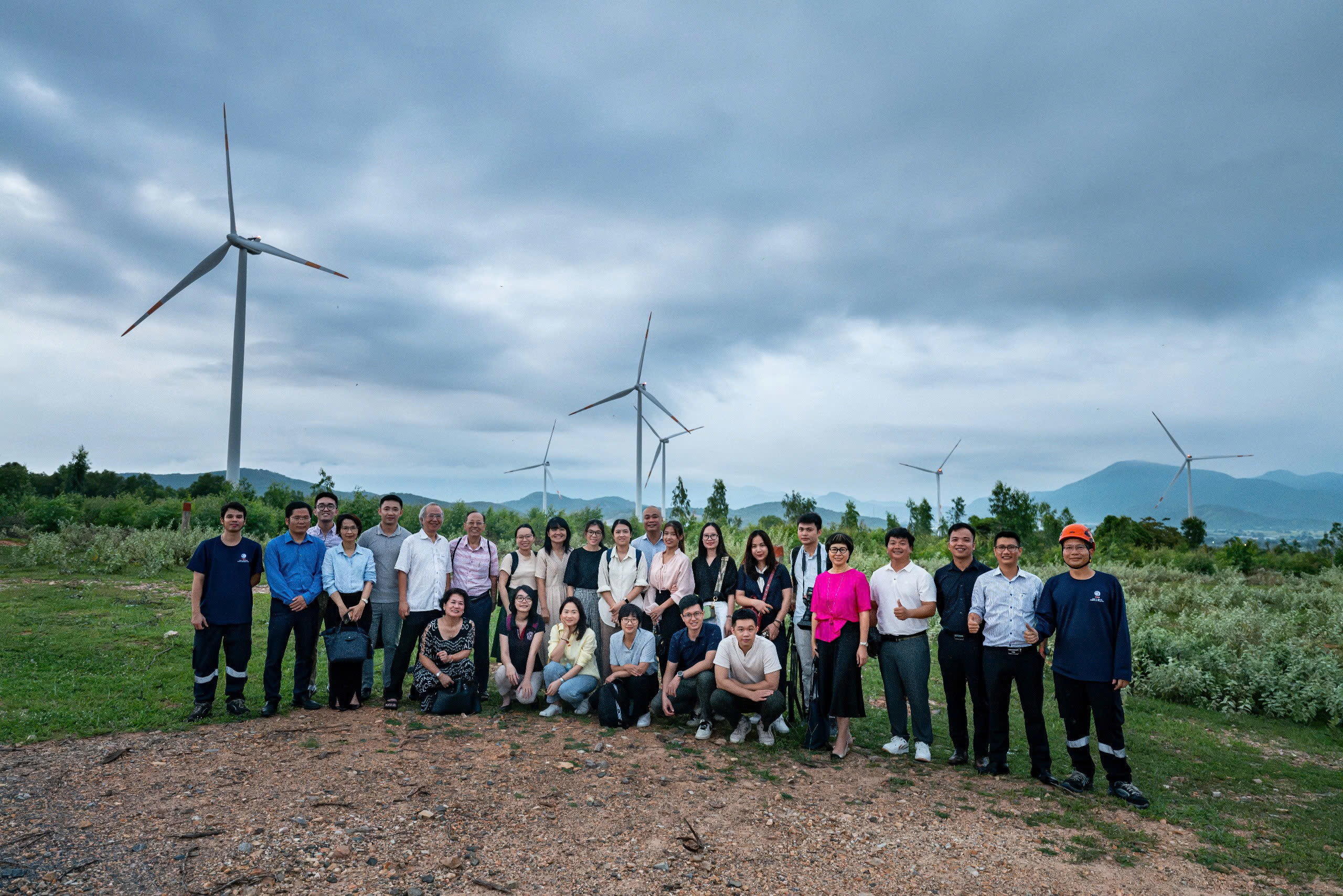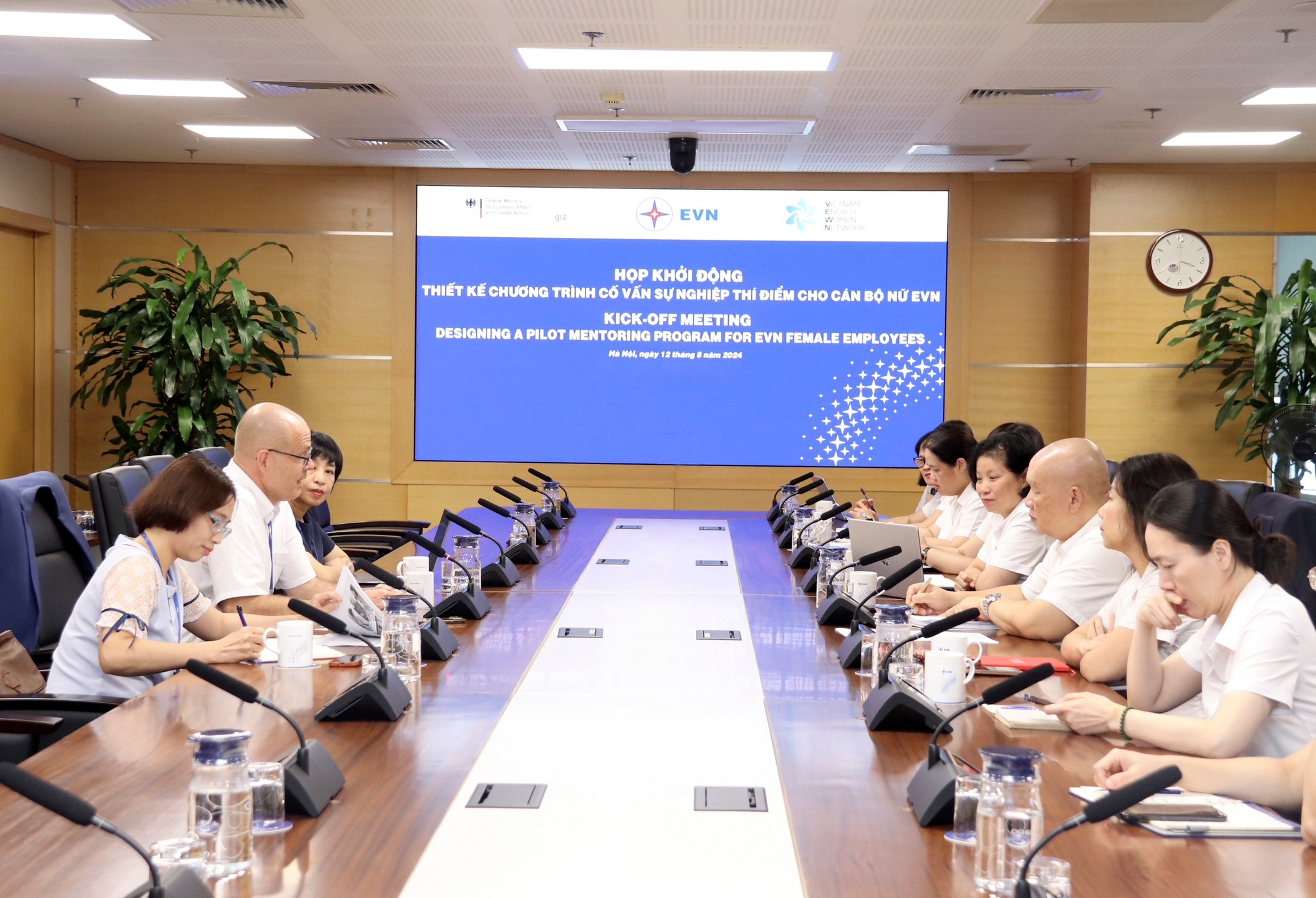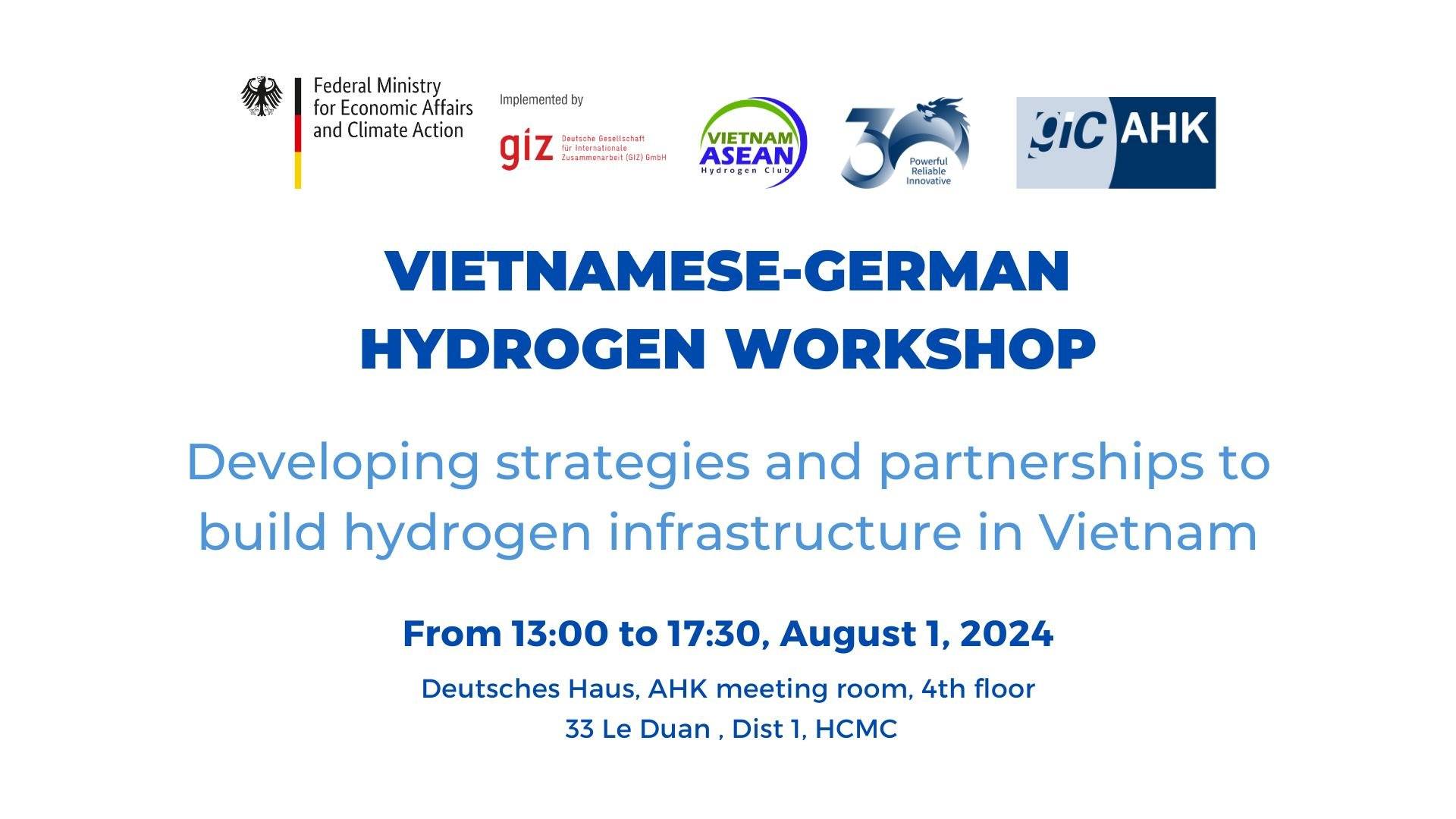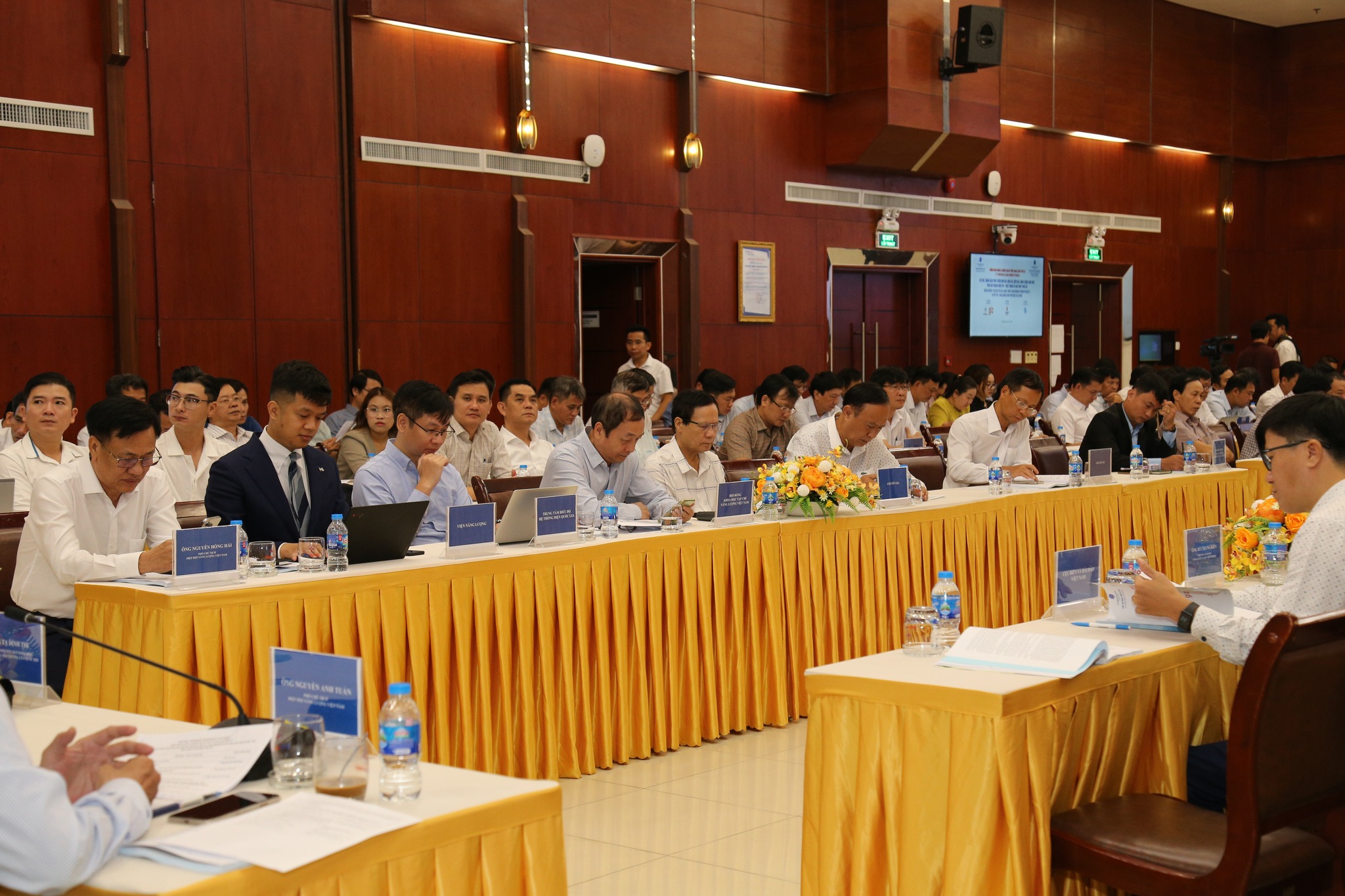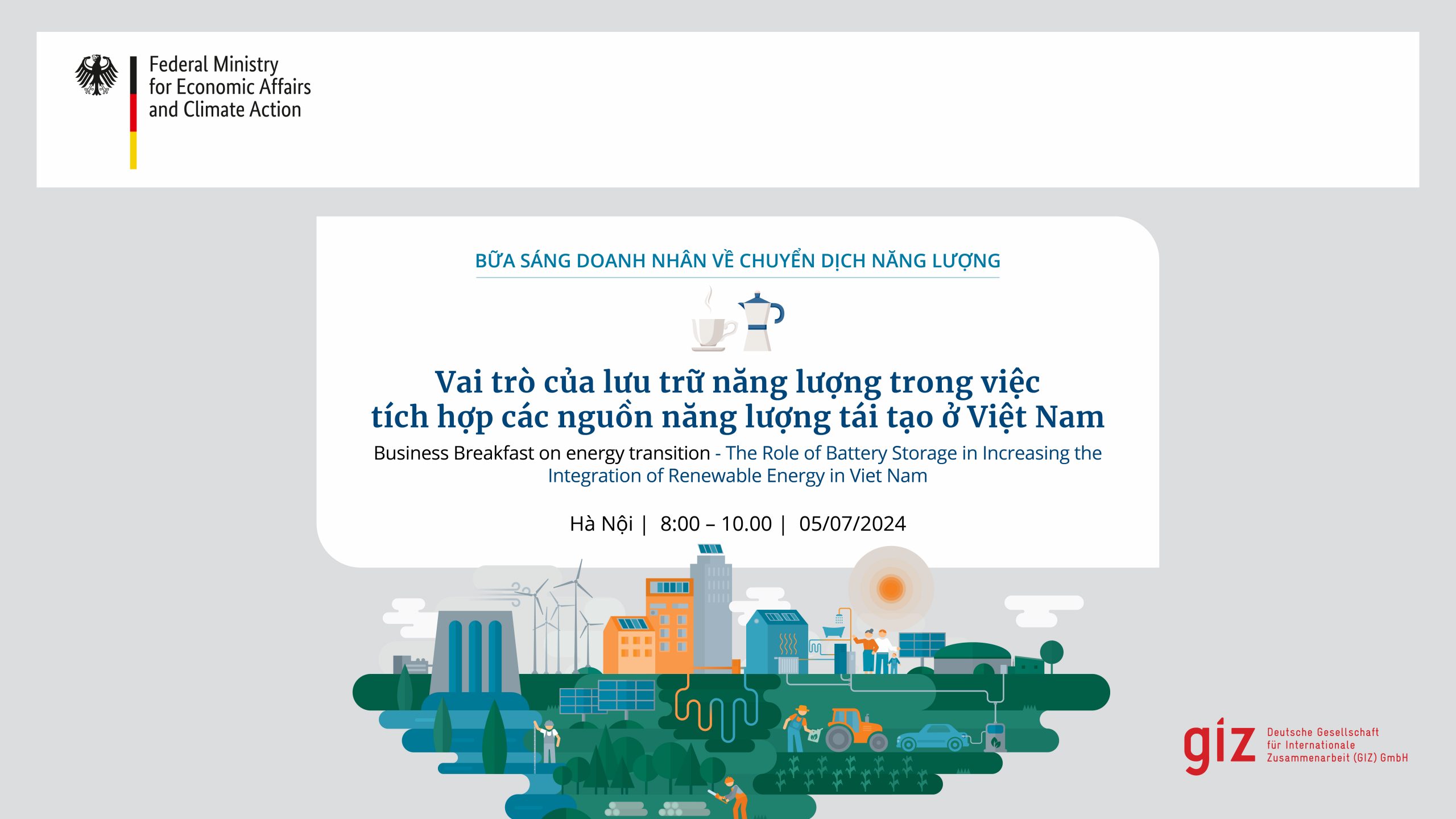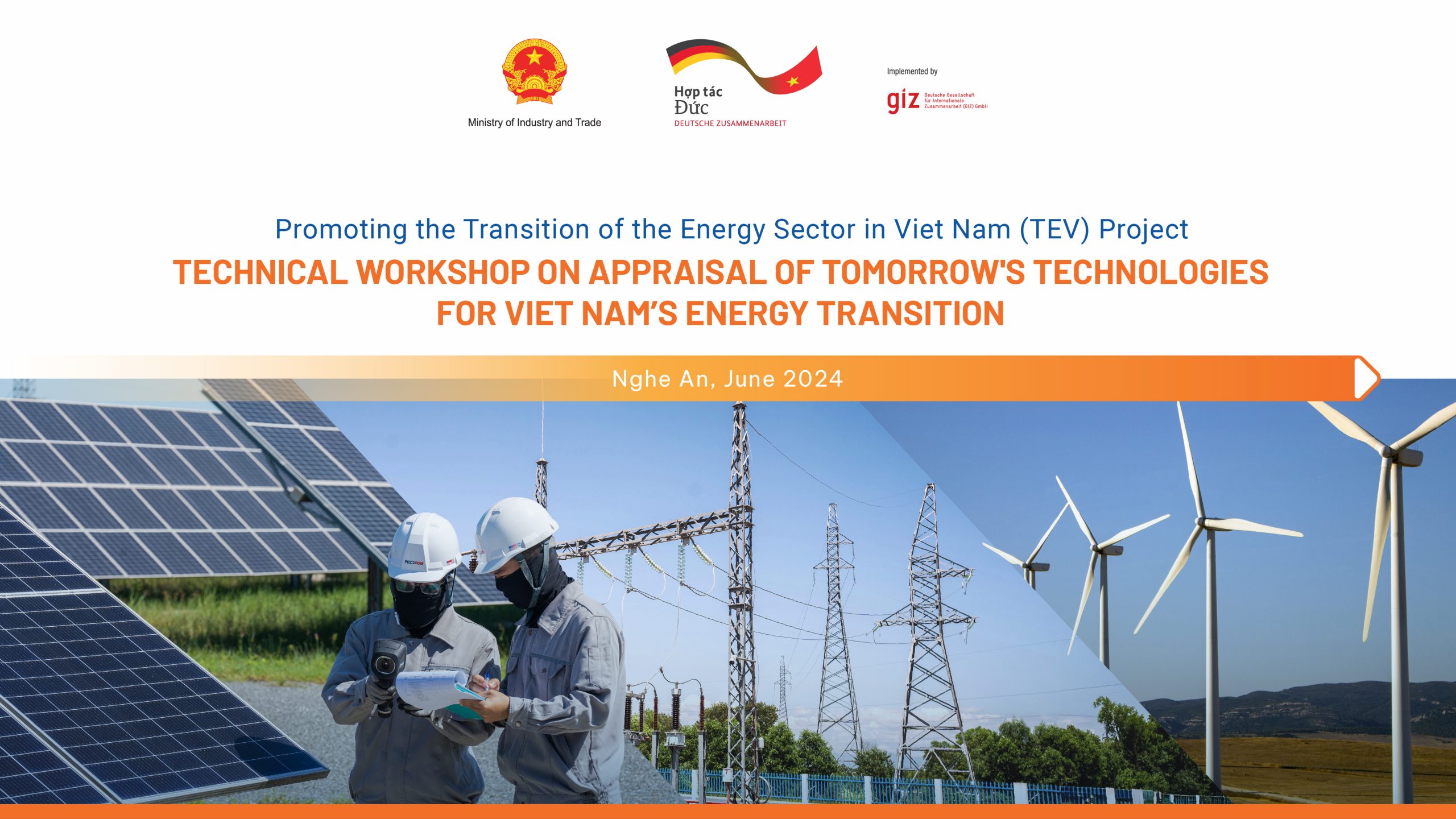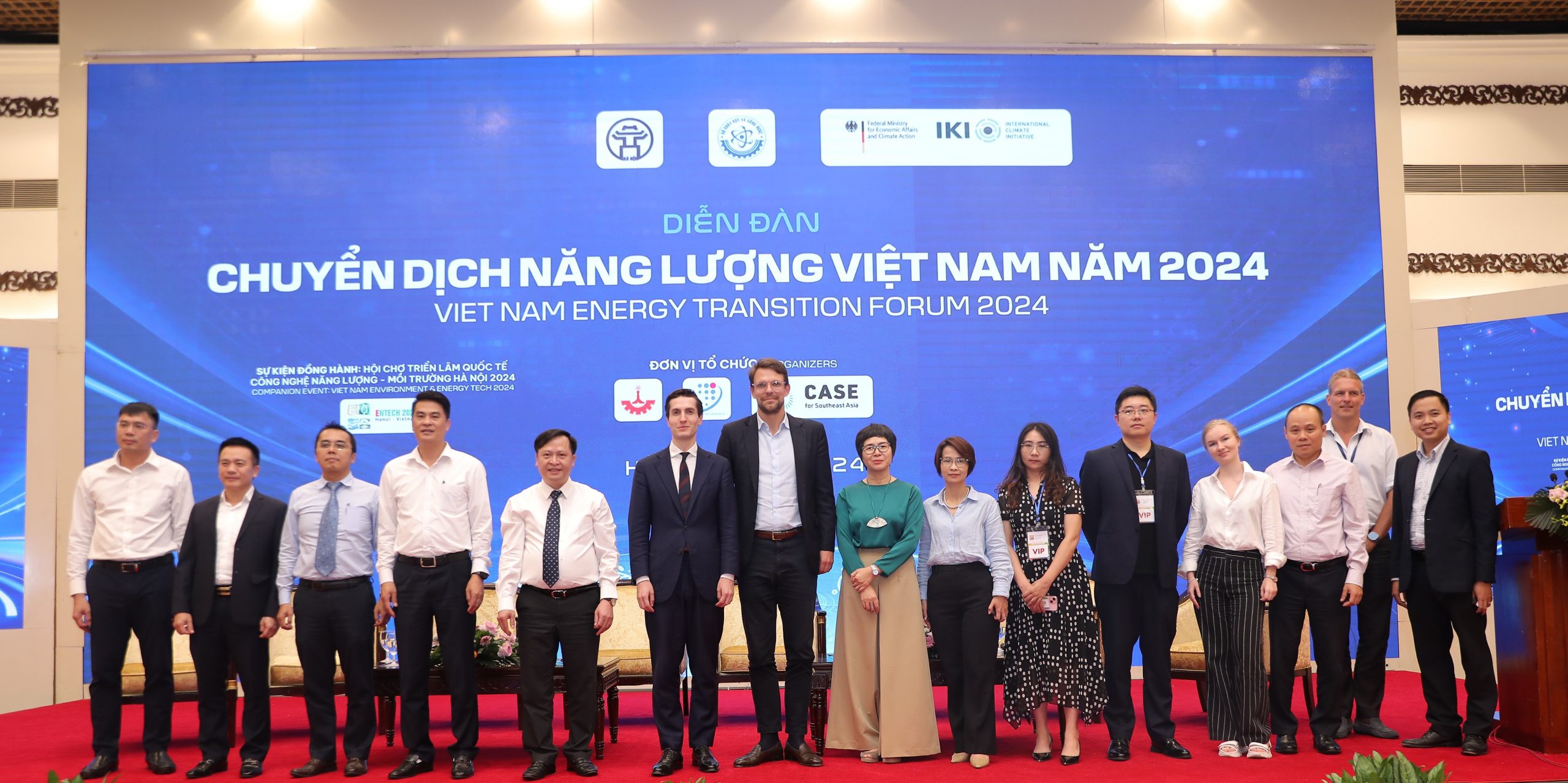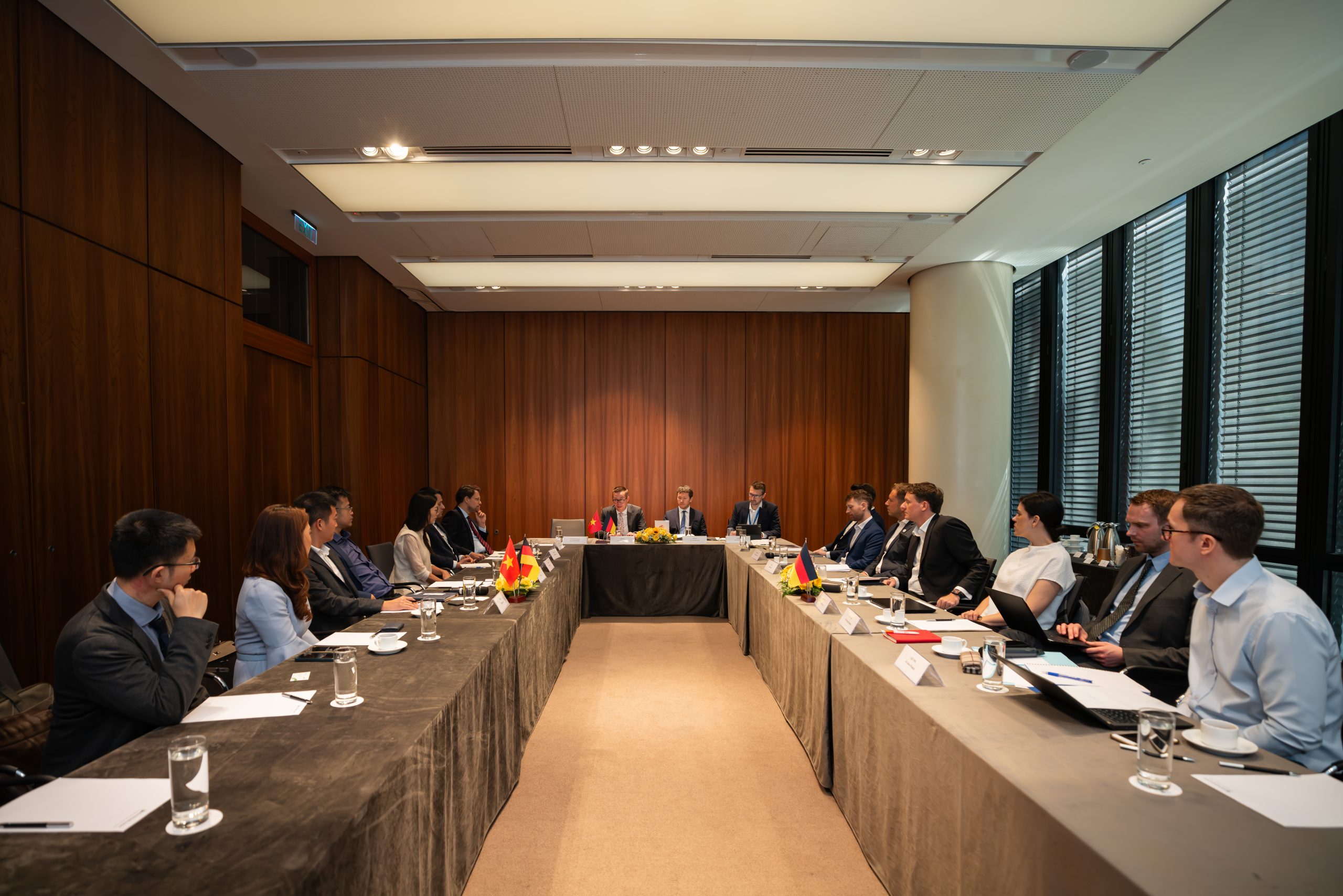Hanoi, 26 August 2021 – Viet Nam should consider adopting major solutions for planning and operational grid management if the country wants to optimise the operation of renewable energy sources and make the best use of the clean source in its power system.
The proposals took centre stage in the virtual workshop ‘Grid management solutions to the optimal operation of renewable energy sources in power system’ which took place on 26 August. The event was jointly organised by the Electricity Regulatory Authority of Vietnam (ERAV) of the Ministry of Industry and Trade (MOIT) and the Deutsche Gesellschaft für Internationale Zusammenarbeit GmbH (GIZ)1.
Participants were representatives from affiliated entities under the MOIT, the Commission for the Management of State Capital at Enterprises (CMSC) and the Vietnam Electricity, experts from the Vietnam Electrical Engineering Association, the Vietnam Energy Association, universities and non-profit organisations, as well as local and international consultants.
“All measures that we proposed in today’s workshop will support Viet Nam to make the best use of the enormous potential of renewable energy, make efficient and optimal use of grid systems, and avoid limiting the generation capacity of renewable energy sources. As a result, the country can achieve a dual goal on both promoting renewable energy and maintaining stable electricity supplies, to move toward a future of sustainable energy,” said Mr. Markus Bissel, Director of GIZ’s Smart Grids for Renewable Energy and Energy Efficiency (SGREEE) project.
At the workshop, the participants were updated with analysis of the country’s current electricity system and its current grid management situation. Overview of international best practices was presented so local experts could learn from the lessons in dealing with relevant issues. The GIZ-coordinated consultation group put forward the following key measures for Viet Nam:
- Planning measures: The most essential proposal is the issuance of a reasonable feed-in tariff (FIT) mechanism which varies according to region, time, or demand. Other promising solutions are energy storage systems, grid digitalisation/automation and grid expansion.
- Operational measures:
- Grid-related measures: High voltage direct current transmission is recommended as a long-term solution. Other short- and medium- term measures are the application of advanced software to optimise the grid topology, equipping phase shifting transformers and on-load tap changersPage Break
- Market-related measures: Major solutions should be considered to enable participation of new business models and players in the power market, i.e., energy storage systems or virtual power plant models, the implementation of demand side management, demand response program, application of re-dispatch measure with involvement of decentralised small-scale renewable energy-based power plants and
the ability to conclude an opposite electricity trade transaction (countertrading) to optimise operation of renewable power plants.
- Renewable energy feed-in management: Limiting the generation capacity of renewable energy sources should be conducted as a last resort after the above-mentioned measures are applied but exhausted. The compensation for the lost revenue will be later paid to developers at certain level.
In recent years, Viet Nam has witnessed a boom of renewable energy projects as a result of attractive incentive mechanism to promote the development of solar power (Decision 11/2017/QD-TTg) and wind power (Decision 39/2018/QD-TTg).
However, most of those projects are located in the hotspot regions with high renewable energy potential while the grid infrastructure is not sufficient to release the capacity. Along with the problem, the instability of grid systems caused by a large gap between peak load and off-peak load has also led to serious grid congestion. The action of limiting renewable energy-based generation is unavoidable as a result, affecting the projects’ revenue and investment efficiency. The measures proposed at the workshop, therefore, are expected to support Viet Nam in addressing the problems.
The event was part of the SGREEE project, which is implemented by the ERAV/MOIT and GIZ. The project is financed by the German Federal Ministry for Economic Cooperation and Development (BMZ).
Under the SGREEE project, the first group of experts on smart grid has been established in Viet Nam:?https://www.facebook.com/groups/smartgridvn/.?Information about the project is available on the?Smart Grid Viet Nam Knowledge Hub at?https://smart-grid.vn/?or ESP’s website.



